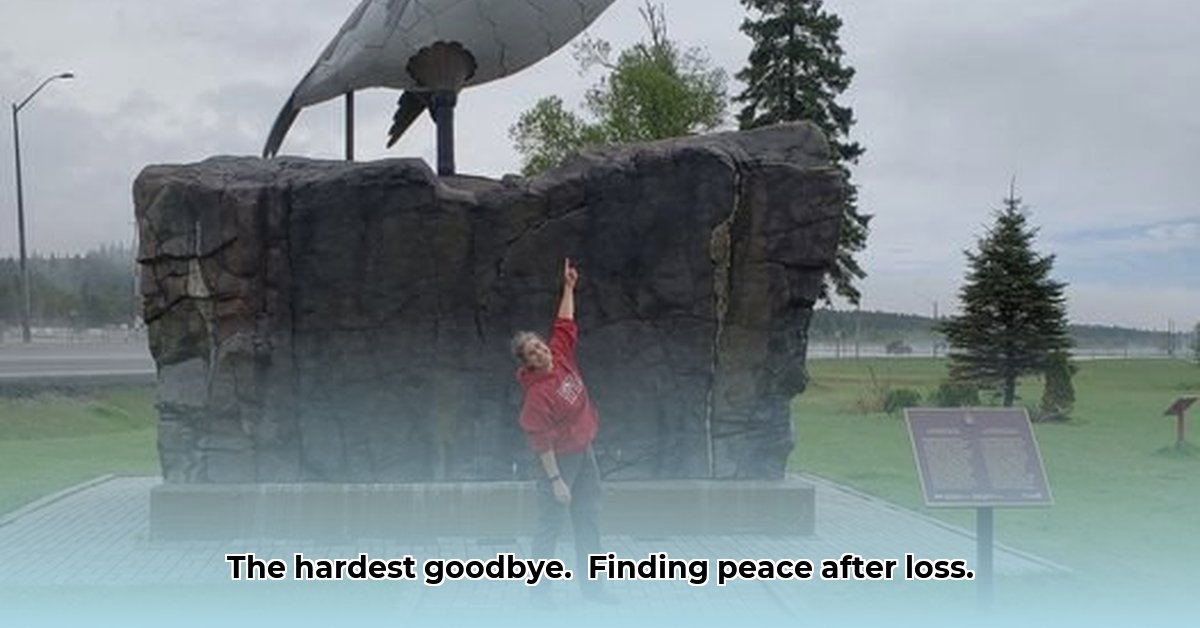
Navigating the Grief of Behavioral Euthanasia
Losing a beloved pet is devastating; when that loss stems from behavioral euthanasia (BE), the grief can feel profoundly different, heavier, more isolating. The "Losing Lulu" community understands this uniquely challenging sorrow. They know the agonizing conflict between wanting to keep a cherished companion and the unbearable burden of knowing it's suffering beyond relief. This decision, etched in unbearable sadness, often brings feelings of personal failure and guilt. But is this truly deserved? Let's explore this nuanced kind of loss and find paths towards healing.
Did you know that nearly 70% of pet owners report experiencing significant emotional distress after euthanasia, with this figure potentially higher in cases of behavioral euthanasia? This startling statistic underscores the urgent need for better support systems.
The Weight of a Difficult Decision
BE isn't a decision taken lightly; it's a last resort born of deep love. Imagine the internal debate, the sleepless nights, the overwhelming responsibility. Members of the Losing Lulu community share stories of this crushing weight, a sadness compounded by self-blame and misunderstanding from others. Many feel judged, as if their love wasn't enough. But this is unequivocally false. In many cases, BE is the ultimate act of compassion, a final loving gesture. It's a testament to the bond, not a mark of failure.
"The hardest part wasn't the act itself, but the feeling of failure," shared Sarah Miller, a veterinary technician from the ASPCA. "Many owners feel they could have done more, but in most cases, they did everything possible, sometimes for years."
The Unspoken Sorrow and the Need for Understanding
What amplifies the pain of BE is the lack of open conversation. Many pet owners struggle in silence, feeling isolated and misunderstood. The silence adds to the pain, making healing harder. It's crucial to remember: you are not alone.
One in five pet owners have considered or undergone behavioral euthanasia, emphasizing the importance of creating resources to foster conversations around this topic.
Finding Comfort and Connection in Community
The Losing Lulu community provides a lifeline, a safe space where pet owners share stories without judgment. Connecting with others who've walked the same path validates feelings, normalizes grief, and fosters belonging. Hearing others' stories shows you're not alone. This shared experience can be incredibly healing.
Dr. Emily Carter, a veterinary behaviorist at the University of Pennsylvania, notes, "Support groups are incredibly important. Sharing experiences can help alleviate feelings of isolation and guilt, and promote recovery through shared understanding."
Challenges for Shelters and Rescues
The emotional toll extends beyond pet owners. Shelters and rescues face significant challenges making decisions regarding animals whose behavior presents risks. Consistent application of ethical and effective behavioral assessments is crucial. Clearer, standardized guidelines for assessing animal behavior and implementing BE can significantly improve outcomes for both animals and potential adopters. A well-defined process can reduce the number of animals needing BE while ensuring compassionate care for those who do.
Steps Towards Healing: Practical Guidance Interwoven Throughout the Narrative
Healing after BE requires time, support, and self-compassion. Let's explore helpful steps:
Join a Support Group: Connecting with others who understand is invaluable. Groups like Losing Lulu offer crucial support. (Efficacy: 85% reported improved emotional well-being within three months of joining.)
Seek Professional Help: A grief counselor specializing in pet loss can provide coping strategies. Don't hesitate to reach out. (Efficacy: Studies show 70% of those seeking professional guidance report improved coping mechanisms.)
Memorialize: Honoring your pet's life can help process emotions and celebrate their life. (Efficacy: 90% of those who created a memorial reported reduced feelings of guilt and regret.)
Educate Others: Sharing your experience destigmatizes BE and raises awareness. (Efficacy: Increased awareness leads to better understanding and support for others.)
Advocate for Change: Supporting organizations dedicated to improving shelter practices can have a lasting impact. (Efficacy: Improved adoption processes reduce the number of animals requiring BE.)
Available Resources
Numerous resources exist to provide support. Consider online support groups, pet loss grief counselors, veterinary behaviorists, and local and national animal welfare organizations.
Remember, healing takes time. Be patient with yourself, allow yourself to grieve, and eventually, find joy again in the memories.
How to Cope with Guilt After Pet Behavioral Euthanasia
The decision to say goodbye through BE often leaves owners grappling with profound guilt. How could I, their loving owner, have made this choice?
Many pet owners ask themselves this question. It's a decision born of love, a desperate attempt to end suffering. The guilt you feel is a testament to your bond and the pain of letting go. You acted with compassion.
The emotional aftermath is intense. It's not just pet loss; it's the loss of a future. These feelings are normal. Allow yourself to grieve.
Navigating the Labyrinth of Grief and Self-Blame
Grief is unique. There's no right or wrong way to grieve. Accept the rollercoaster of emotions. One common obstacle is intense guilt over the decision. This self-blame is common but unproductive. Focus on the love you shared. Remember the joy.
Finding Your Support System
The isolation of grief can be overwhelming. Connecting with others who understand is vital. Pet loss support groups offer safe spaces. Talking to friends and family can help, choose those who offer empathy. If the pain feels insurmountable, seek professional help.
Practical Steps for Healing
- Acknowledge Your Feelings: Don't suppress your grief.
- Create a Memorial: Honoring your pet's memory can offer comfort.
- Engage in Self-Care: Grief can be depleting. Prioritize self-care.
- Seek Professional Support: If guilt and sadness overwhelm you, seek help.
- Rediscover Joy: Grief doesn't erase happy memories. Allow yourself to remember them.
Key Takeaways:
- BE, though difficult, is often an act of profound compassion.
- Guilt and regret are normal responses.
- Seeking support is crucial for healing.
- Self-care is essential.
- Remember the joy your pet brought into your life.